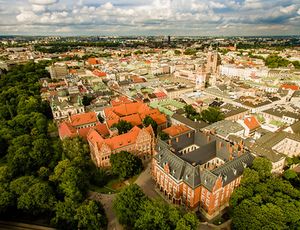
The Institute of Culture Villa Decius and the Jagiellonian University have signed an agreement within the framework of the international programme Scholars at Risk to accommodate the first refugee researcher in Poland. The document was signed by the director of Villa Decius Dr hab. Dominika Kasprowicz, Prof. UJ and Rector’s Proxy for Internationalisation Prof. Piotr Laidler. The meeting was also attended by the director of the Department of Culture and Heritage of the City of Kraków Katarzyna Olesiak.
According to the agreement, the scholar will take up residence in Villa Decius in September this year. The Jagiellonian University will provide them with conditions suitable for conducting their research projects. The researcher’s name will be revealed after they arrive in Poland. ‘We’re happy and proud that our city, represented by Villa Decius, a place of refuge for artists from around the world, and the Jagiellonian University, the oldest polish higher education institution, was the first in Poland to join the programme’, said Dr hab. Dominika Kasprowicz, Prof. UJ.
Scholars at Risk is an international network of academic institutions and individuals which aims to protect oppressed members of the academic community and promote academic freedom. By organising temporary work spaces at partner higher education institutions, the network secures the safety of threatened academics, making it possible for them to continue their work until they are no longer in danger.
Scholars at Risk also provides counselling services for researchers and member institutions, organises campaigns for oppressed or imprisoned academics, monitors attacks on the academic community around the world and develops new tools and strategies for promoting academic freedom. Currently, the programme brings together 507 higher education institutions in 39 countries as well as 13 cooperation networks.





